What Is Micro Growing Cannabis?

- 1. Cannabis growing conditions
- 1. a. Differences
- 2. Main requirements
- 2. a. Lights
- 2. b. Ventilation and air exchange
- 2. c. Nutrients
- 2. d. Appropriate pot size
- 3. Choosing the strain
- 4. Plant training
- 5. Micro growing cannabis faqs
- 6. In conclusion
Growing your own feminized seeds has been gaining a lot of popularity, people who can’t find good quality flowers or don’t want to deal with dealers are starting to grow their own. Even though it may seem super hard and expensive, having your own growing space doesn’t need to be hard at all, you can grow like a pro indoor, even in smaller spaces.
A micro cannabis grow consists of scaling down a grow tent, the only difference being the amount of space available. This results in a fully functioning indoor growing space that can fit in a small closet, a homemade grow box or even smaller spaces like a computer case or a cupboard.
1. Cannabis growing conditions
Just like in all other growing setups, you will have to provide a good environment for your plants to grow, this can be a bit hard when dealing with small spaces but it’s not impossible.
For your plants to grow properly, you will need to provide and maintain a relative humidity in between 60-50%, a temperature ranging from 18-25°C and 18hs of light for autos and photos in the vegetative stage, and 12/12 for photoperiodic strains in the flowering stage.
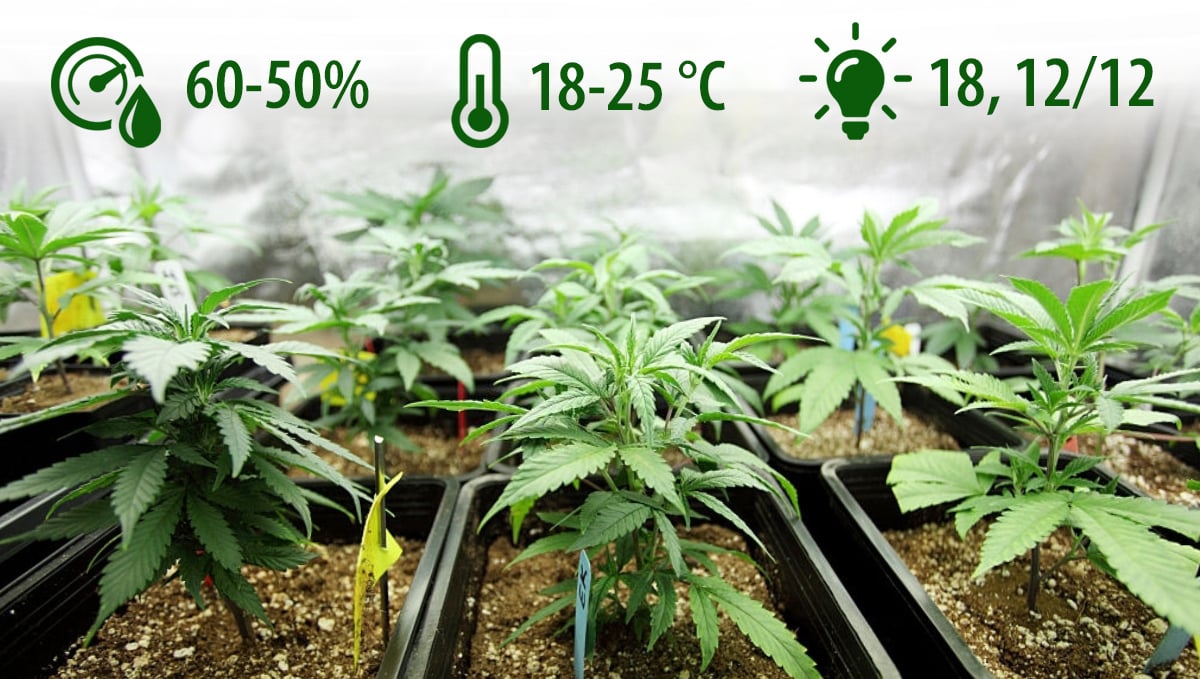
Despite being smaller, the growing space needs to have everything a normal-sized growing space has, so you won’t need to spend too much but you will need the basics.
Differences
There isn’t a big difference when growing in a small space, obviously you’re limited by the space you have available so you’ll have to choose the genetics wisely and perform plant training but other than that, it’s basically the same.
The challenge when micro growing cannabis is to be able to provide and maintain a good growing environment for your plants, this can be difficult when growing in small spaces but it’s not impossible, you most likely won’t get it right the first time but after making minor adjustments it will work like a charm.
3. Main requirements
Providing the needed amount of all these elements is crucial if you want to have a successful harvest, you will not need to spend too much or buy super expensive equipment but remember that when growing indoors you are responsible for controlling the environment your plant grows in so these things are obligatory.
Micro growing setups are usually homemade, it doesn’t really matter the material or size of the grow box as long as you provide everything your plant needs and that is:
Lights
Light is a key element in plant growth, obviously you won’t need a high-intensity light fixture but you will need to provide the appropriate amount of light for your plants to develop.
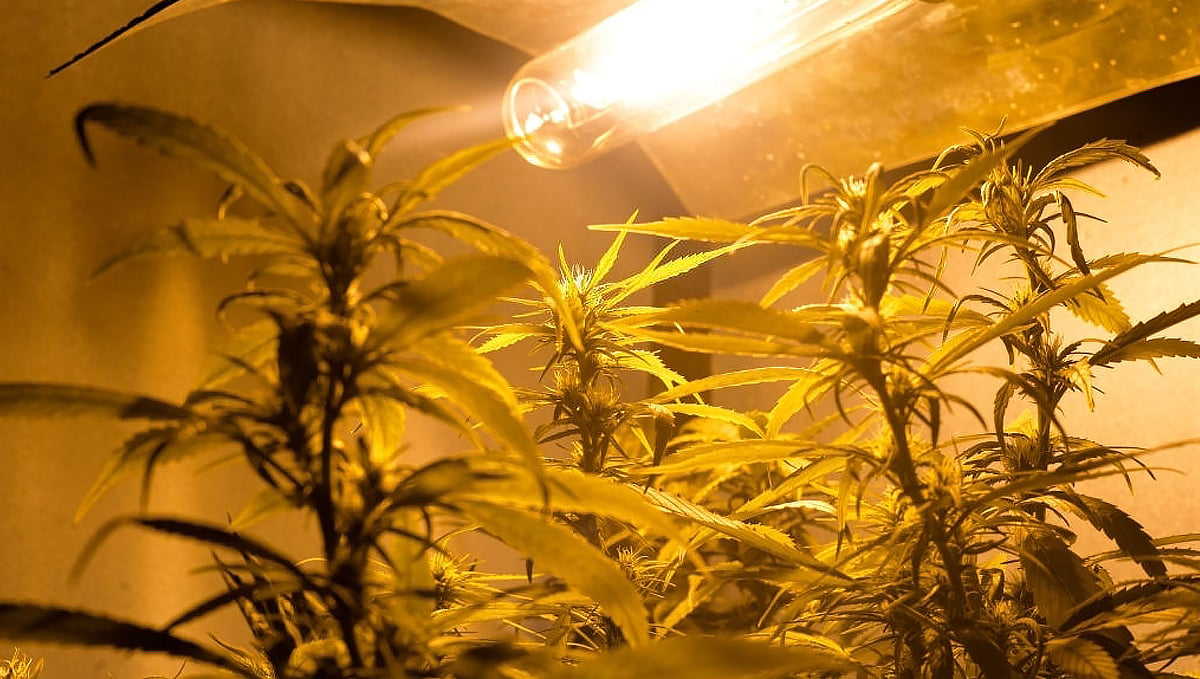
You cannot grow cannabis without light, that’s a fact. It doesn’t matter what kind of light you use either an LED or light bulb, now, light bulbs emit heat but can be near the plants while LEDs don’t emit much heat but can bleach your plants if they’re too close to the plants so depending on the growing space you will have to choose one or another.
Because of the limited space, you won’t have a lot of plants so you can also use fluorescent tubes and CFLs but remember to provide at least 400w per m2 and have in mind that when using light bulbs you have to use white lights in the vegetative stage and yellow lights, almost all LEDs are full-spectrum so you won’t need to worry about this if using LED fixtures.
It’s essential you provide a wide light spectrum if you want to get dense buds so make sure you take extra caution before buying the lights. A common query when designing a micro grow is where exactly the lighting should be placed. Traditional grow rooms have the main light fixtures placed directly above the plants, with auxiliary lights sometimes added in various places throughout the grow room.
Since micro grows are often short on space, this traditional method may not be the best option. If you are going to grow in a tall vertical space with a small footprint it may be better to hang your light alongside the plant. This can be done on one side, but if possible it is better to cover multiple sides of the grow compartment with light sources. This helps with light distribution and penetration through the entire canopy and can help combat any stretching issues you may encounter when lighting from above only.
Ventilation and Air exchange
Like said above, plants need CO2 to perform photosynthesis. There are around 400PPM of carbon dioxide in the air we breathe so there’s no need to provide more than what’s already available but you will need a way to exchange air.
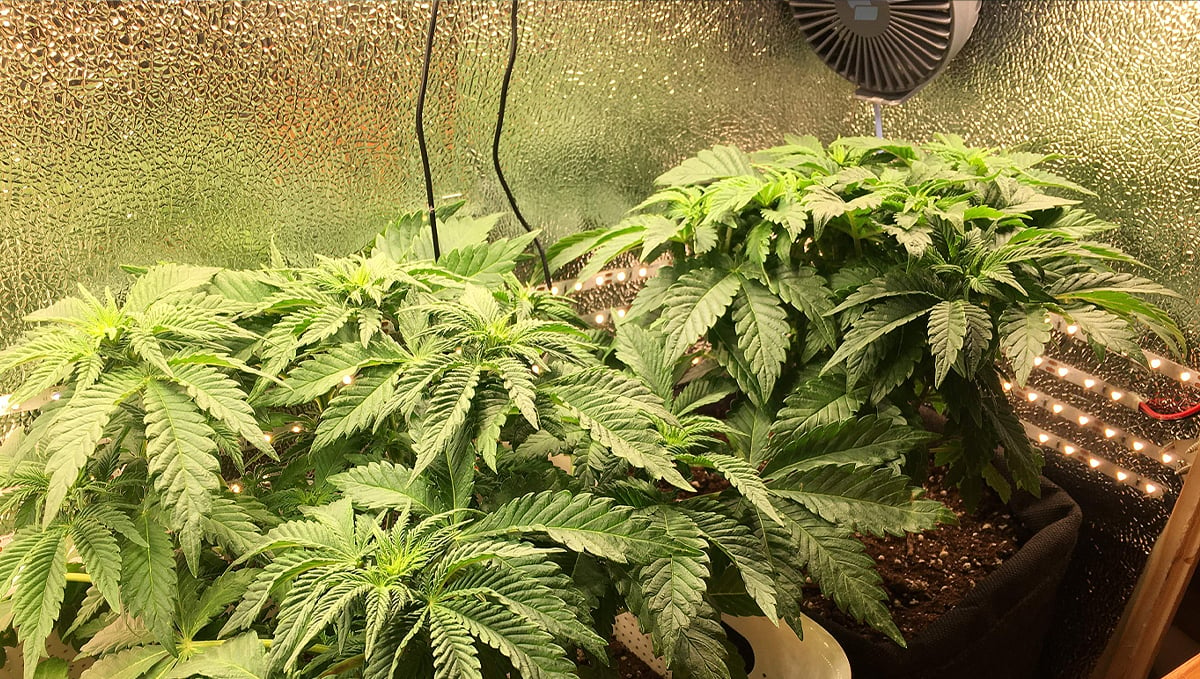
Because the space is limited and you don’t need and can’t fit an exhaust fan, you can achieve this just by having the door open or a couple of holes for the air to naturally circulate, this way you avoid having problems.
If you don’t make sure the air is exchanged several times a day, your plants will not be able to grow properly because they need CO2 to perform photosynthesis.
You will also need a small fan to help the air circulate, this will not only help exchange air but will also prevent bugs and make your plant’s branches and stem stronger.
Nutrients
Plants need macro and micronutrients to grow properly, if the medium is sterile and you don’t feed your plants, they will start to show nutrient deficiencies and can stop growing at all.
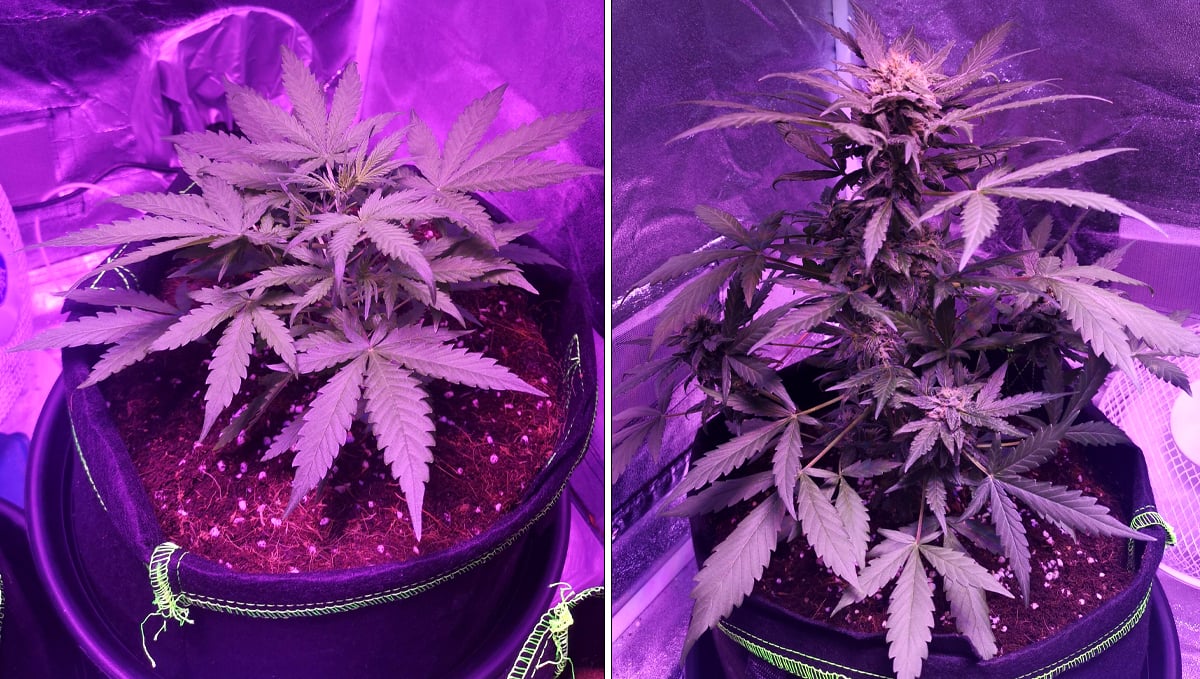
Because the pots are usually smaller and contain a smaller amount of soil (or the medium of your choice) you will have to water more often and maybe divide the nutrient dose you would give once in two or three, this will help your plant absorb it easier because the medium can only hold a limited amount of water.
Have in mind that you can grow photoperiodic strains but you can have trouble controlling their height so if you're a beginner grower it’s better to start with autoflowering plants so you don’t risk ending up without a harvest.
Appropriate pot size
As you may know, the size of a plant is a reflection of the size of the roots so using smaller pots is necessary in smaller growing spaces, because the pot is smaller and will have less medium, you will have to water and feed more frequently.
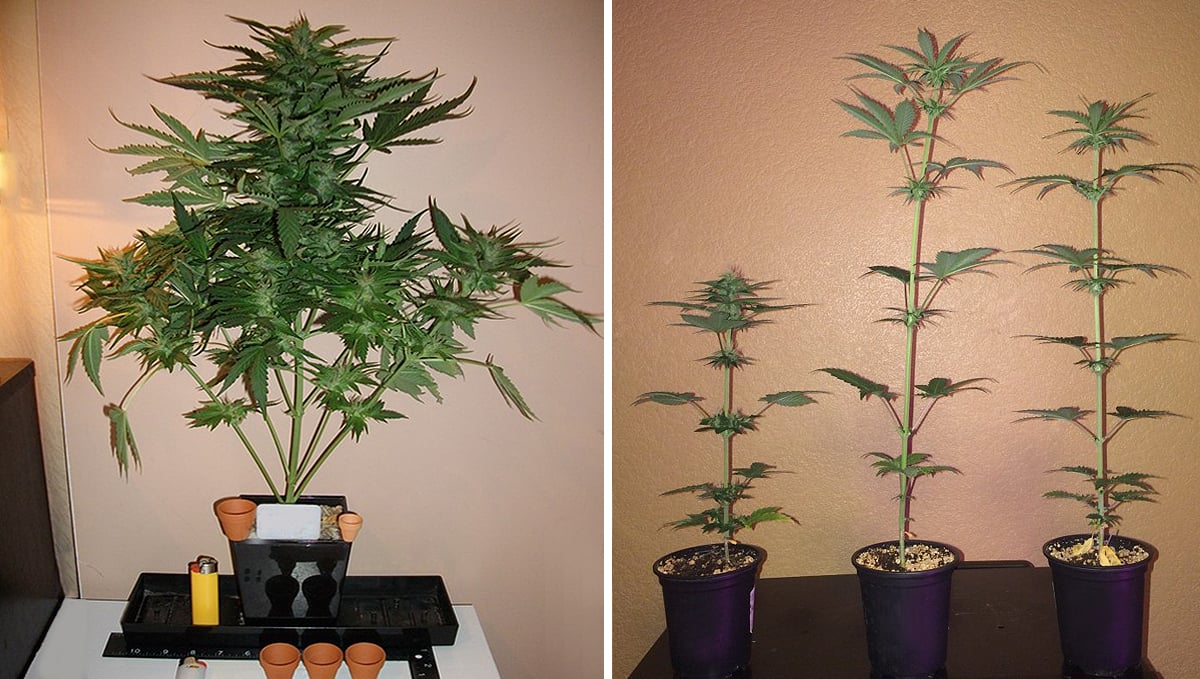
Even though the size can vary from strain to strain, here's a chart to help you have an idea of the approximate plant size for smaller pots:
| Pot size | Plant height |
|---|---|
| 1/2 L | 20cm |
| 1L | 35-40cm |
| 2L | 45-65cm |
This will also keep the branches shorter but depending on the strain, your plant can develop a lot of branches that you will have to control with plant training techniques if needed. The figures shown in the table above are just a general guide. Exact plant sizing will be dependent on which strain to type you opt to grow, and which growing techniques you implement. For micro grow setups, pots no larger than 2 to 3 liters are recommended. Some growers prefer to use larger pots and grow fewer plants, but a good general rule of thumb for maximizing yields in small grow areas is to go with more plants in smaller pots.
4. Choosing the strain
Because of the limited space, you will have to choose the right genetics so you don’t have a problem further into your plants growth cycle.
In this type of setup autoflowering strains are ideal, although some strains grow taller than others, so you have to be careful and pay attention to the information the breeders give.
For example, if your growing space is tall and narrow you’ll be better with Sativa-dominant strains, Sativas grow tall and skinny and are better for this kind of grow space whereas Indica-dominant plants grow short and bushy and are better suited for shorter and relatively wide.
Sativa dominant strains are known to increase in size by up to 200 to 300% during the flowering stage, whereas most Indica dominant varieties show increases in size closer to 65 to 130%. Certain Autoflowering strains are great for micro growing as they can be grown under multiple light schedules with some strains having a tendency to stay small and compact.
5. Plant training
When growing cannabis in a limited space, plant training is essential. There are a lot of plant training techniques that not only allow you to control the size your plant will have and even out the canopy but also help improve yields.
In small growing spaces there are a couple of growing techniques that are recommended:
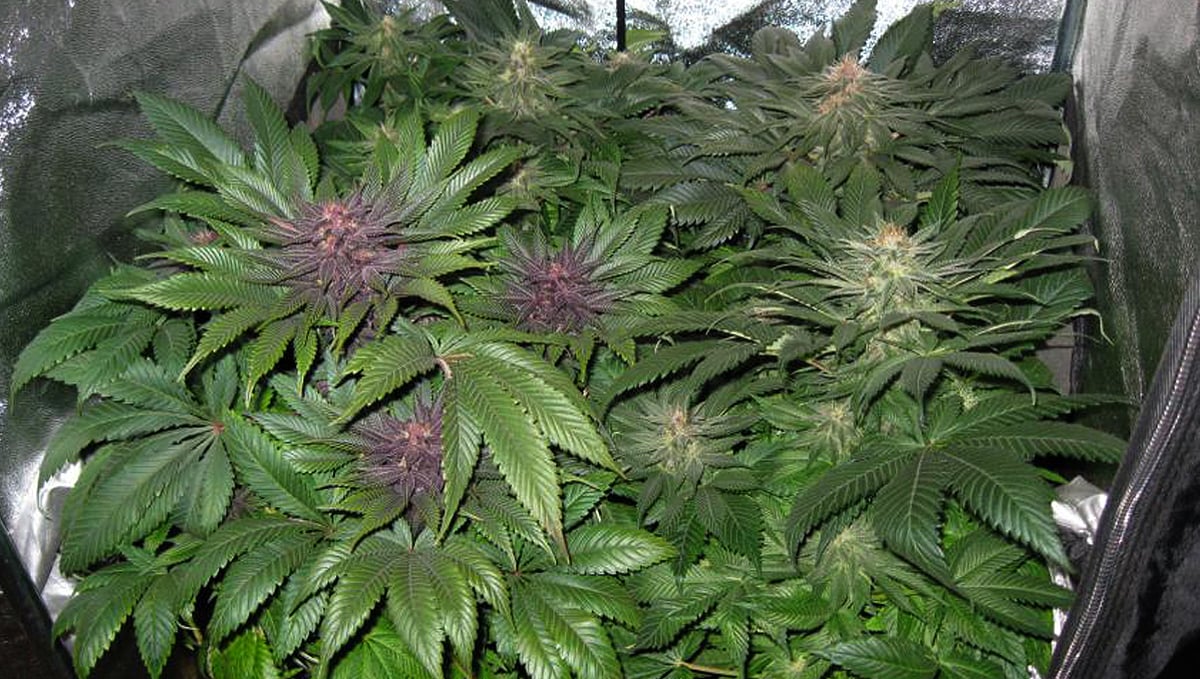
Tying down branches
The tie-down method is fairly easy but you won’t be able to grow more than 2-3 plants in a limited space, this is because tying down the branches allows you to control the height by training your plant to grow to the sides.
You can also use high stress training techniques like topping or fimming but to effectively perform these techniques you need a bit of experience, HST techniques are not recommended with autoflowering strains but can be used with photoperiodic cannabis so you have to know what you’re doing so you don’t risk your harvest.
By choosing the better-suited strain for the space you have available you won’t have a problem, and if it grows a little bit more than what you expected, you can use any plan training technique you find appropriate.
Scrog
Screen of green (aka Scrog) consists of having a trellis net on top of your plants, this will not only allow you to control height but will also open up the branches so your plants have more airflow in the buds and also allows the light to reach deeper.
Sog
A sea of green (aka Sog) is the most appropriate technique for this type of cannabis grow, it consists of having a lot of plants, growing small and not producing too much individually but will add up to a lot after harvesting all of them.
The plant training method you use will depend on the space you have, remember you don’t have to use just one, you can combine (for example) the Scrog method with the tie-down method to reach the desired height and structure. Keep in mind that auto-flowering plants tend to struggle with any aggressive plant training. High-stress training can halt vegetative growth for a few days all the way up to a week or more. These techniques are fine for photoperiod plants as they can be forced to stay in the vegetative stage by keeping the light schedule to 18/6.
Autoflowering plants have an inbuilt timer, with the vegetative stage usually lasting 5 to 6 weeks before they automatically start flowering (hence the name autoflower), no matter what light schedule they are grown under. Be sure to treat autoflowering plants like the princesses they are, keep any stress training to a minimum, and handle them with the care they deserve!
6. MICRO GROWING CANNABIS FAQs
Okay, we've gone through almost everything there is to know about growing weed in tiny spaces, but as with almost every aspect of cannabis cultivation, there are always going to be a few lingering questions. Let's quickly run through the most commonly asked questions regarding micro cannabis grows, and try to answer them in the most straightforward and easy-to-understand terms.
Is it legal to grow cannabis in small spaces?
It depends on where you are located. Generally, the legality of growing cannabis is determined by federal or state laws, so it's best to check with your local regulations before beginning a micro-grow project. Some jurisdictions may have restrictions on the number of plants that you can grow (not usually an issue for micro growers), and also exactly how you are allowed to grow (often an issue for micro growers).
What is the best lighting option for micro grows?
This really depends on the grow space, but for the overwhelming majority of situations, an LED panel will give you the best results. LEDs have recently (in the past 5 or so years) truly overtaken HID rigs as the gold standard in cannabis cultivation, and this couldn't be more true than when discussing miro grows. Thanks to the fact that LEDs run on a fraction of the power that HIDs do, and produce minimal heat, they are often the go-to option for micro growers.
What about ventilation for micro grows?
Ventilation is essential in any grow situation, but it becomes especially important when discussing micro grows. Due to their small size, air can become stale and stagnant very quickly in micro grows, causing issues such as mold or pests. To combat this, you will likely need to install some form of passive or active ventilation system into your setup. This can be as simple as a small computer fan and ducting to route air out of a window, or something more complex like an AC unit that pumps fresh air into the grow space.
What if my growing space is too small to support more than one plant?
If your micro-grow space limits you to only one plant, then you can simply focus on one plant! You may want to choose a strain that produces super resinous buds with high THC content, so you can get the most out of your single plant. We suggest looking at something like Banana Purple Punch Auto or Gorilla Cookies Auto. These strains are known for their high yields of potent cannabis flowers and should do well in a micro-grow environment.
What cultivation style works best for micro grows?
That really comes down to your level of experience, and how comfortable you are working with a certain substrate. It should go without saying that if you are looking to maximize your yield and potency, then hydro is the route to go down. But, most micro growers are looking for a discreet cultivation option, and hydro is inherently non discreet (when compared to a small soil-based grow, anyway).
If you are looking for an easy growing experience then we suggest a medium that's about 30% high-grade soil, 30% coco-coir, 20% quality compost, and 20% perlite. This should provide the plants with all the nutrients they need for at least the first 5 weeks, and then you can just add a top dressing of powdered nutes as flowering begins.
What are some tips for getting maximum yields out of a micro grow?
When it comes to achieving maximum yields, there are several factors that you need to consider. Firstly, make sure you have the right lighting setup and ventilation – these two elements are an absolute must if you want to achieve maximum yields. Secondly, focus on providing your plants with optimal nutrition, using the best quality nutrients you can find and making sure they are given at the right intervals throughout the growing cycle. Finally, practice good hygiene in the grow space – this means regularly cleaning any surfaces that come into contact with your plants to prevent possible contamination, as well as ensuring that the growing environment is comfortable for the plants. If you can do all of these things, you should be able to achieve great yields from a small space!
How many grams can I expect to yield?
This is an almost impossible question to answer, as it just has so many variables that can affect the final weight. In general, though, one medium-sized plant from a high-yielding strain should provide over an ounce, if not two.
7. In conclusion
You can grow cannabis in any space as long as you provide the basic elements a plant needs, it doesn’t matter if it’s a huge or a tiny growing space.
If you have experience with this type of growing, please feel free to share your tips and tricks in the comment section below!








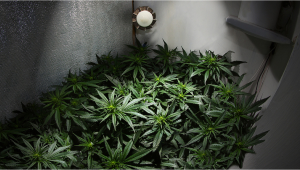
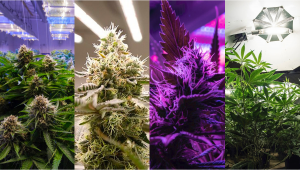
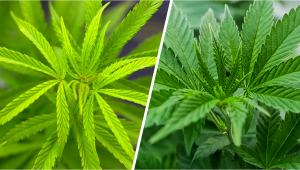
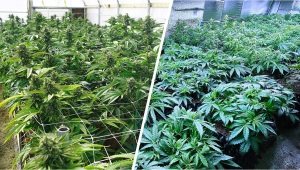
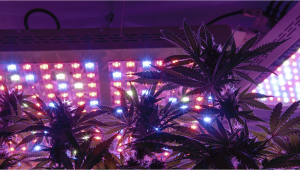
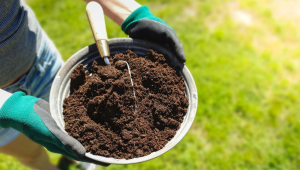


Comments